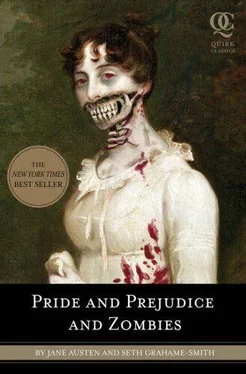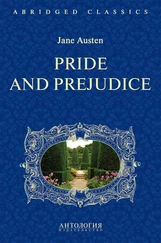Her feet, fists, and blade were too swift for the clumsy horde, and they began to retreat. Seeing her chance, Elizabeth sheathed her Katana, sprang into the driver’s box, and grabbed the reins. The zombies had already begun to regroup as she cracked the coachman’s whip, driving the horses forward and carrying them down the road at a rather unsafe speed, until she was satisfied that the danger had passed.
Shortly thereafter, they approached the southern face of London’s wall. Though she had once walked upon China’s Great Wall, Elizabeth was nonetheless impressed whenever she had occasion to lay eyes upon Britain’s Barrier. Considered alone, each section offered little to boast of. The wall was similar in height and appearance to that of many older castles, and punctuated by the occasional gorge tower or cannon port. But considered as a whole, the wall was so massive as to defy the notions of what was possible with human hands. Elizabeth brought the carriage to a halt at the southern guard tower. A dozen or more chaises were stopped ahead of them-waiting as the guards searched for contraband and made certain that none of the passengers showed signs of the strange plague. Sir William poked his head out and informed Elizabeth that the coachman had died, and asked if she thought it appropriate to leave his body beside the road.
As they drove to Mr. Gardiner’s door, Jane was at a drawing-room window watching their arrival; when they entered the passage she was there to welcome them, surprised by the sight of Elizabeth in the driver’s box. Elizabeth’s spirits lifted at the sight of her sister, who looked as healthful and lovely as ever. She relayed the details of their unhappy journey as swiftly as she could, and begged they speak no more of it, except to say that she had never seen such a number of unmentionables together in the country, and wonder why so many would attack a single chaise. The day passed most pleasantly away; the morning in bustle and shopping, and the evening at one of the theatres.
Elizabeth then contrived to sit by her aunt. Their first object was her sister; and she was more grieved than astonished to hear, in reply to her minute inquiries, that though Jane always struggled to support her spirits, there were periods of dejection. It was reasonable, however, to hope that they would not continue long. Mrs. Gardiner gave her the particulars also of Miss Bingley’s visit in Section Six East, and repeated conversations occurring at different times between Jane and herself, which proved that the former had, from her heart, given up the acquaintance.
Mrs. Gardiner then rallied her niece on Wickham’s desertion, and complimented her on bearing it so well.
“But my dear Elizabeth,” she added, “what sort of girl is this new object of his affections? I should be sorry to think our friend mercenary.”
“Pray, my dear aunt, what is the difference in matrimonial affairs, between the mercenary and the prudent motive? Last Christmas you were afraid of his marrying me, because it would be imprudent; and now, because he is trying to get a girl with only ten thousand pounds, you think him mercenary.”
“If you will only tell me what sort of girl she is, I shall know what to think.”
“She is a very good kind of girl, I believe. I know no harm of her.”
Before they were separated by the conclusion of the play, Elizabeth had the unexpected happiness of an invitation to accompany her uncle and aunt in a tour of pleasure which they proposed taking in the summer.
“We have not determined how far it shall carry us,” said Mrs. Gardiner, “but, perhaps, to the Lakes.”
No scheme could have been more agreeable to Elizabeth, and her acceptance of the invitation was most ready and grateful. “My dear, dear aunt,” she rapturously cried, “what delight! What felicity! You give me fresh life and vigour. Adieu to disappointment and spleen. What are young men to rocks and mountains? Oh! what hours of mountaintop sparring we shall spend! How many bucks we shall fell with nothing more than our daggers and swiftness of foot! Oh! How we will please Buddha by communing with the earth!”
EVERY OBJECT in the next day’s journey was new and interesting to Elizabeth. With a new coachman and twice their original number of musket men, they hastened to Hunsford. Once arrived (their journey happily uneventful), every eye was in search of the Parsonage, and every turning expected to bring it in view. Rosings Park was their boundary on one side. Elizabeth smiled at the recollection of all that she had heard of its inhabitants.
At length the Parsonage was discernible. The garden sloping to the road, the house standing in it, the green pales, and the laurel hedge, everything declared they were arriving. Elizabeth felt at once relaxed, for there had been no reports of zombies in Hunsford for years. Many attributed this to the presence of Lady Catherine-so great a slayer that the stricken dared not venture too close to her home.
Mr. Collins and Charlotte appeared at the door, and the carriage stopped at the small gate which led by a short gravel walk to the house, amidst the nods and smiles of the whole party. In a moment they were all out of the chaise, rejoicing at the sight of each other. But when Mrs. Collins welcomed Elizabeth, the latter was greatly distressed by the appearance of the former. It had been months since she had seen Charlotte, and kind months they had not been, for her friend’s skin was now quite gray and marked with sores, and her speech appallingly laboured. That none of the others noticed this, Elizabeth attributed to their stupidity-particularly Mr. Collins, who apparently had no idea that his wife was three-quarters dead.
They were taken into the house; and as soon as they were in the parlour, Mr. Collins welcomed them a second time, with ostentatious formality to his humble abode, and punctually repeated all his wife’s offers of refreshment.
Elizabeth was prepared to see him in his glory; and she could not help in fancying that in displaying the good proportion of the room, its aspect and its furniture, he addressed himself particularly to her, as if wishing to make her feel what she had lost in refusing him. But though everything seemed neat and comfortable, she was not able to gratify him by any sigh of repentance. After sitting long enough to admire every article of furniture in the room, Mr. Collins invited them to take a stroll in the garden. To work in this garden was one of his most respectable pleasures; and Elizabeth admired Charlotte’s efforts to talk of the healthfulness of the exercise, even though it was quite difficult to understand her.
From his garden, Mr. Collins would have led them round his two meadows; but the ladies, not having shoes to encounter the remains of a white frost, turned back; and while Sir William accompanied him, Charlotte took her sister and friend over the house. It was rather small, but well built and convenient. Though she was pleased to see her friend comfortably settled, there was a grief about the whole affair, for Charlotte would not long be able to enjoy her happiness.
She had already learnt that Lady Catherine was still in the country. It was spoken of again while they were at dinner, when Mr. Collins joining in, observed:
“Yes, Miss Elizabeth, you will have the honour of seeing Lady Catherine de Bourgh on the ensuing Sunday at church, and I need not say you will be delighted with her. Her behaviour to my dear Charlotte is charming. We dine at Rosings twice every week, and are never allowed to walk home. Her ladyship’s carriage is regularly ordered for us. I should say, one of her ladyship’s carriages, for she has several.”
“Wady Caferine very respectable… sensible woman,” groaned Charlotte, “and most attentive nay-bah.”
Читать дальше












